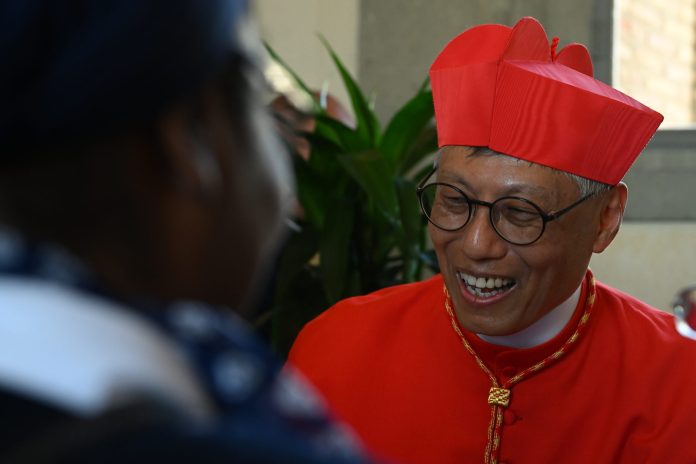A simple misunderstanding over food became a powerful lesson in cultural sensitivity and interreligious respect for Cardinal Stephen Chow, S.J., who recently participated in the 8th Colloquium of Buddhist-Christian Dialogue in Cambodia.
In a personal reflection published Friday, Cardinal Chow—who serves as Bishop of Hong Kong and a member of the Dicastery for Interreligious Dialogue—recounted how a misstep in meal preparation during the colloquium exposed unspoken assumptions and underscored the importance of goodwill in nurturing interfaith unity.
“What impressed me was that the Buddhist religious from the Han tradition were reasonably ‘flexible,’” he wrote, noting that while they observed a strict vegan diet, including avoidance of garlic and onions, “they could tolerate a small amount… provided that there were no other options available.”
The issue emerged when organizers, assuming all Buddhist participants shared dietary practices, failed to account for distinctions between the Southern Buddhist tradition predominant in Cambodia—which allows meat—and the Han tradition followed by several visiting monks and nuns.
As a result, initial meals were either meat-heavy or unknowingly included ingredients not permissible to Han Buddhists.
“There was a big plate of salad with a large bowl of rice. And those were the only two food options available to us,” Cardinal Chow wrote, only to discover later that the salad “was tuna fish mixed in it!”
Though the mishap caused some discomfort, the Buddhist guests responded with patience. “They were a little disappointed but not irritated. They ate, but less,” he observed.
The cardinal stressed that the miscommunication was not due to ill will, but to unchecked assumptions. “No wonder the Catholic organisers were not aware of the special dietary needs of the Han tradition,” he said. “They assumed that the Buddhist religious participants were the same as their Cambodian monks.”
Cardinal Chow emphasized that missteps like these serve as important opportunities for learning and growth in interreligious dialogue. He underscored the need to not only verify assumptions to prevent misunderstandings but also to cultivate mutual goodwill throughout the process.
The event ended on a positive note with a Farewell Dinner that accommodated everyone’s dietary requirements. One of the Buddhist participants, smiling appreciatively, shared that it was the first meal during the event that had left her feeling full—an expression of gratitude rather than criticism, according to Cardinal Chow.
Drawing from a similar episode involving Tibetan monks in Hong Kong, the cardinal reflected: “Again, assumptions should be verified, even though they were supposed to follow our ‘logical’ assumptions.”
“Goodwill, patience, and loving hope are the required ingredients for everyone to understand, appreciate and come closer to each other. Lesson learned,” said the prelate.









